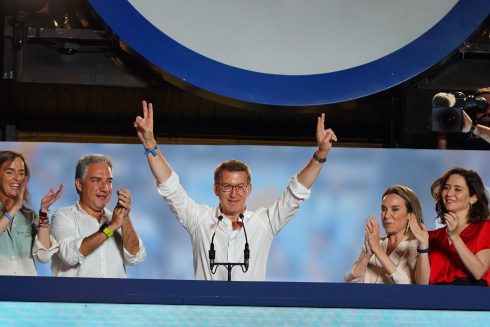SPAIN faces weeks or even months of political uncertainty as the general election results appear too close to call with 99% of votes counted.
Predictions of the conservative Partido Popular (PP) getting most votes were correct, with them winning 136 seats, but the far right Vox party, much touted to become the king makers in a new conservative government, suffered a crash in the polls.

With votes counted, they have 33 seats, compared to the 52 seats they were defending, a near 20% fall, possibly showing Spanish voters are disillusioned with extremist policies at a national level.
The new left wing Sumar movement – expected to side with the PSOE in attempts to form a – socialist government gained 31 seats.
The end result is that neither of the main political blocs have enough seats to form a government.
A PP-Vox coalition would have 169 seats, 10 short of the 176 needed for a parliamentary majority.
On the other hand, PSOE and Sumar can only gather 153 seats, way short of a majority in the 350 seat parliament.
This means that the many regional parties who have gained the remaining seats have the balance of power.
Many of these have already said they will not work in a coalition with Vox.
In order to form a government much negotiation with these parties is in store. These negotiations will take place in the weeks to come.
If no agreement can not be reached, then another general election will have to be called – as it was in 2019 when negotiations failed initially. The PSOE eventually took office with the agreement of regional parties.








